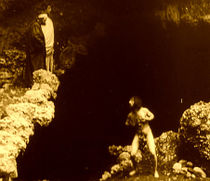Template:Pictorial-Islam-options: Difference between revisions
| [checked revision] | [checked revision] |
mNo edit summary |
mNo edit summary |
||
| Line 126: | Line 126: | ||
<option weight="1">{{Pictorial-Islam|1=List of Genuine Islamic Inventions, Innovations, Records and Firsts|2=[[File: | <option weight="1">{{Pictorial-Islam|1=List of Genuine Islamic Inventions, Innovations, Records and Firsts|2=[[File:Islamic tie.jpeg|200px|link=List of Genuine Islamic Inventions Innovations Records and Firsts]]|3=Many articles have made provably false claims, attributing various inventions, innovations and discoveries made by others to Islam and its followers. This article lists only genuine Islamic/Muslim inventions, innovations, records and firsts. Examples include: | ||
1) The yellow badge that was to be eventually used by the Nazis against the Jews, was invented by a Muslim caliph in Baghdad in the 9th century as a variant of the zunnār belt. This then spread to the western world in medieval times. | 1) The yellow badge that was to be eventually used by the Nazis against the Jews, was invented by a Muslim caliph in Baghdad in the 9th century as a variant of the zunnār belt. This then spread to the western world in medieval times. | ||
Revision as of 15:41, 8 April 2014
Also see: Template:Pictorial-Islam
|
